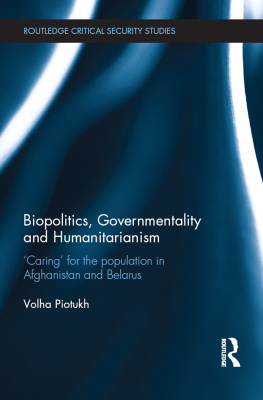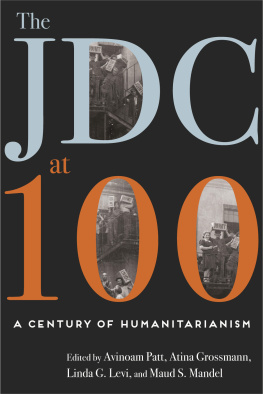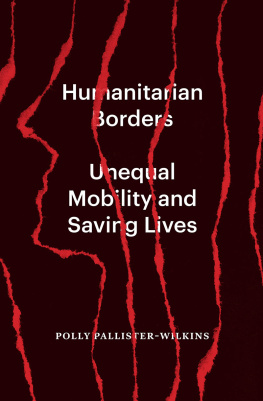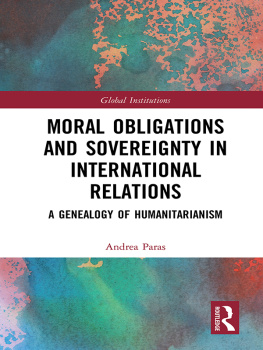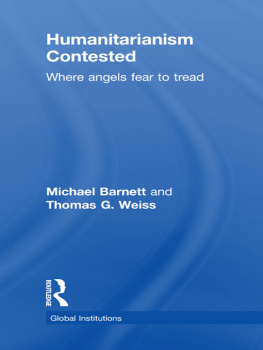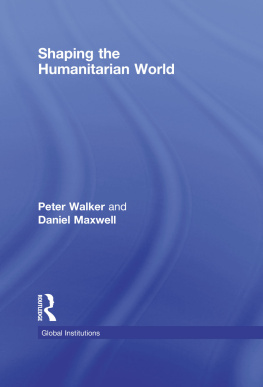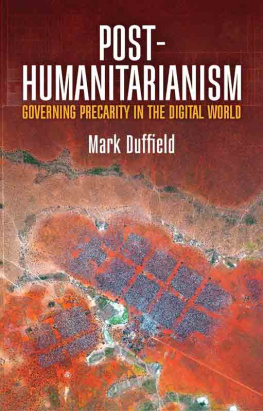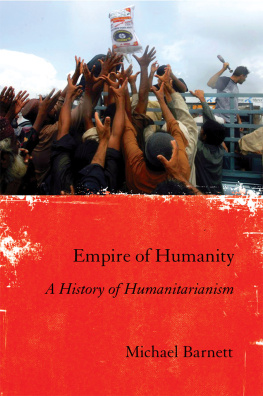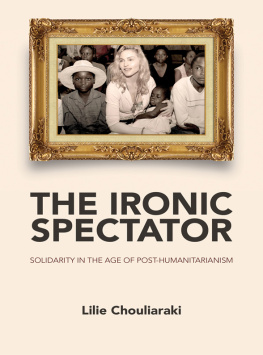Biopolitics, Governmentality and Humanitarianism
This book critically analyses the changing role and nature of post-Cold War humanitarianism, using Foucaults theories of biopolitics and governmentality.
It offers a compelling and insightful interpretation of the policies and practices associated with new humanitarianism in general, as well as of the dynamics of two specific international assistance efforts: the post-2001 conflict-related assistance effort in Afghanistan and the post-2000 Chernobyl-related assistance effort in Belarus.
The central argument of the book is that new humanitarianism represents a dominant regime of humanitarian governing informed by globalising neo-liberalism and is reliant on a complex set of biopolitical, disciplinary and sovereign technologies. It demonstrates that, while the purposes of humanitarian governing are specific to particular contexts, its promise of care is more often than not accompanied by sovereign and/or biopolitical violences.
Making an important contribution to existing scholarship on humanitarian emergencies and humanitarian action, on biopolitics and governmentality, this book will be of much interest to students and scholars of humanitarianism, critical security studies, governmentality and International Relations generally.
Volha Piotukh holds a PhD in Politics and International Studies and is currently Postdoctoral Research Associate at Durham University.
Routledge Critical Security Studies series
Titles in this series include:
Securing Outer Space
Edited by Natalie Bormann and Michael Sheehan
Critique, Security and Power
The political limits to emancipatory approaches
Tara McCormack
Gender, Human Security and the United Nations
Security language as a political framework for women
Natalie Florea Hudson
The Struggle for the West
A divided and contested legacy
Christopher S. Browning and Marko Lehti
Gender and International Security
Feminist perspectives
Edited by Laura Sjoberg
Reimagining War in the 21st Century
From Clausewitz to network-centric warfare
Manabrata Guha
The New Spatiality of Security
Operational uncertainty and the US military in Iraq
Caroline M. Croser
Human Security as Statecraft
Structural conditions, articulations and unintended consequences
Nik Hynek
US Domestic and International Regimes of Security
Pacifying the globe, securing the homeland
Markus Kienscherf
Securitisation and the Iraq War
The rules of engagement in world politics
Faye Donnelly
Ethics and Global Security
A cosmopolitan approach
Anthony Burke, Katrina Lee Koo, Matt McDonald
(In-)Security and the Production of International Relations
Securitisation and the making of foreign affairs in Europe
Jonas Hagmann
Food Security Governance
Empowering communities, regulating corporations
Nora McKeon
Biopolitics, Governmentality and Humanitarianism
Caring for the population in Afghanistan and Belarus
Volha Piotukh
Biopolitics, Governmentality and Humanitarianism
Caring for the population in Afghanistan and Belarus
Volha Piotukh
First published 2015
by Routledge
2 Park Square, Milton Park, Abingdon, Oxon OX14 4RN
and by Routledge
711 Third Avenue, New York, NY 10017
Routledge is an imprint of the Taylor & Francis Group, an informa business
2015 Volha Piotukh
The right of Volha Piotukh to be identified as author of this work has been asserted by her in accordance with sections 77 and 78 of the Copyright, Designs and Patents Act 1988.
All rights reserved. No part of this book may be reprinted or reproduced or utilised in any form or by any electronic, mechanical, or other means, now known or hereafter invented, including photocopying and recording, or in any information storage or retrieval system, without permission in writing from the publishers.
Trademark notice: Product or corporate names may be trademarks or registered trademarks, and are used only for identification and explanation without intent to infringe.
British Library Cataloguing in Publication Data
A catalogue record for this book is available from the British Library
Library of Congress Cataloging in Publication Data
Piotukh, Volha.
Biopolitics, governmentality and humanitarianism : caring for the population in Afghanistan and Belarus / by Volha Piotukh.
pages cm. (Routledge critical security studies series)
Includes bibliographical references.
1. HumanitarianismPolitical aspectsAfghanistan.
2. HumanitarianismPolitical aspectsBelarus. 3. BiopoliticsAfghanistan. 4. BiopoliticsBelarus. 5. Foucault, Michel, 19261984Political and social views. 6. AfghanistanPolitics and government20017. BelarusPolitics and government1991 I. Title.
HV555.A3P56 2015
361.609478dc23
2014043128
ISBN: 978-0-415-85545-7 (hbk)
ISBN: 978-1-315-88968-9 (ebk)
Typeset in Times New Roman
by Wearset Ltd, Boldon, Tyne and Wear
Contents
As many would attest, every book is a journey, with too many steps, stops, challenges, obstacles, eureka moments, inspirations and influences to list them all. My journey towards this book, in terms of exposure to the issues I am addressing in it, started back in Belarus, when I was Lecturer in International Law teaching in the broad area of Human Rights and International Humanitarian Law. The next important stage of the journey was MA studies at the University of Manchester, which, despite countless challenges, was one of the best experiences of my life, the time when I could feel myself grow every day. This experience was made possible by the Joint Open Society Institute/Chevening/The University of Manchester Scholarship. I would like to thank all my tutors at Manchester, but, in particular, Dr Veronique Pin-Fat and Dr Elizabeth Dauphinee, for it was them who introduced me to Michel Foucaults work, saw some potential in me and encouraged me to continue my academic studies.
This book is largely based on my PhD research generously supported by the University of Leeds (Joint ORSAS/Lupton and Tetley International Research Scholarship), for which I am very grateful. I would like to express my gratitude to my PhD supervisors, Prof. Alice Hills, Dr Ricardo Blaug and Dr Deniol Jones, and to my examiners, Dr Stuart McAnulla and Prof. Mark Duffield. I would also like to thank all the academic and support staff of the School of Politics and International Studies (POLIS) of the University of Leeds who made my time there as a PhD student and a Teaching Assistant such a rewarding experience. While teaching at the University of Leeds, University of Westminster and UCL, I delivered several research-based lectures to MA students. Their response to, and engagement with, my ideas and arguments was very helpful and is much appreciated.
Many people made this research project possible by agreeing to volunteer their time to share their experiences/insights in interviews and/or to facilitate interviews with others for the case studies on the assistance efforts in Afghanistan and Belarus, and I am deeply appreciative of their kind assistance. They cannot all be named here, and most of them expressed a preference to remain anonymous, but I know who they are, and they continue to speak to me through the pages of this book.

